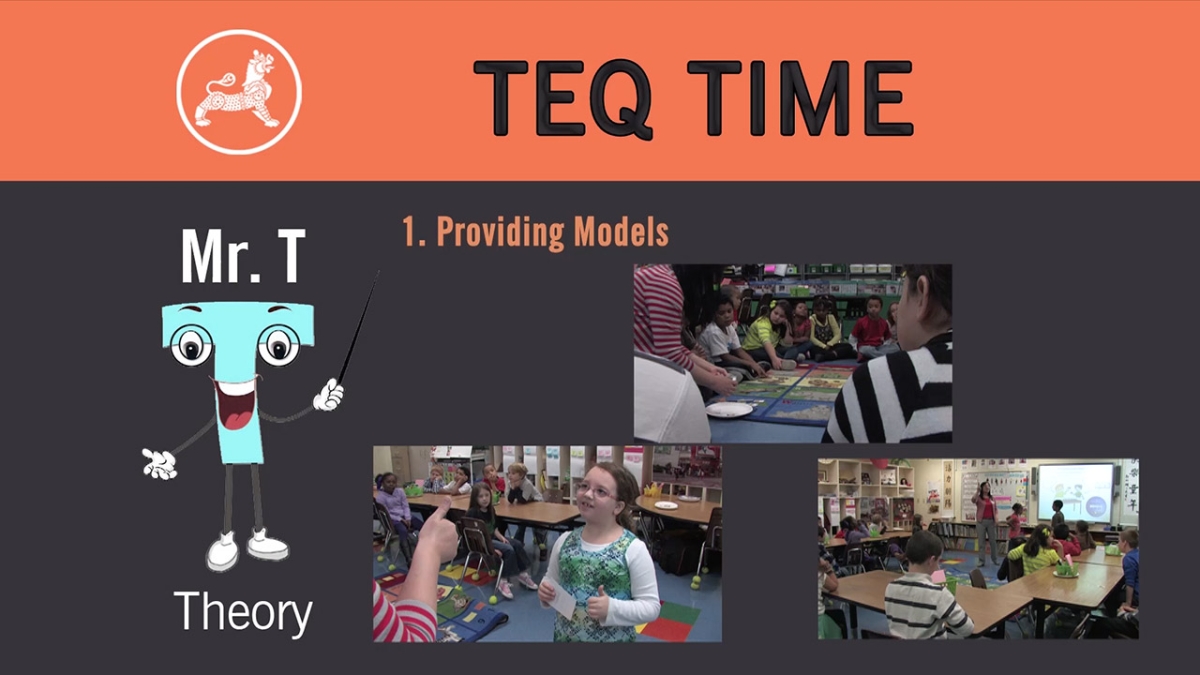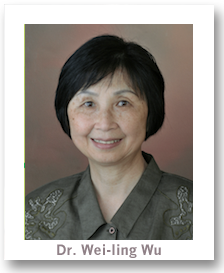How to Use TEQ Series Videos
Instructional Videos for Chinese Language Teachers

A Q&A with Dr. Wei-ling Wu, master Chinese language instructor and designer of the Instructional Videos for Chinese Language Teachers: TEQ Series
Tell us about the Instructional Videos for Chinese Language Teachers: TEQ Series.
The TEQ Series presented by Asia Society illustrates innovative and effective Chinese language instruction in American K–12 classrooms. Each episode of the series consists of a 30-minute edited classroom video interspersed with commentary, a lesson plan for the video lesson, and interviews with the featured teacher and an administrator of the school. This series is intended to serve as a “window into classrooms” so teachers in training and professional development can visualize how various instructional strategies are carried out in real classrooms, reflect on their own teaching, and search for new ideas and strategies to make improvements.
Why is TEQ important?
In today's classrooms, video has become one of the most commonly used aids to engage students in learning. The power of video can also be tapped to inspire and impact the teachers themselves in their professional development. However, it is a false promise that teachers can improve their practice simply by watching a video. With this understanding, we have built in TEQ sessions to guide teachers to think and reflect while watching the video. Following Mr. T, Ms. E, and Ms. Q , teachers will see how Theory, Enthusiasm, and Questions work together to create dynamic, interactive, and effective Chinese language instruction.
How are the video lessons prepared and produced?
The preparation and production of the video lessons is a true learning process for the selected teachers. Teachers first submit a lesson plan that demonstrates their understanding of effective and innovative Chinese language teaching. Based on the lesson plans submitted, featured teachers work individually with a master teacher who serves as a coach through telephone and email over a period of time to revise and refine the lesson plans, discuss details for implementation, and prepare the instructional materials. Through this coaching, teachers expand their understanding of Chinese language instruction and learn new strategies for teaching. After the example lesson is recorded on video and edited, the teachers reflect on their own teaching by reviewing the video episode with the commentary on their lesson.
Are the video lessons perfect?
The featured teachers are exceptionally dedicated, and they work hard to contribute to the field by creating lessons that exemplify best practices. However, no lesson is perfect, and every lesson has room for improvement. These video lessons have brought to life instructional strategies and learning outcomes; they not only demonstrate what works, but also stimulate inquiry into what could be done differently for improvement.
What questions might a teacher in training or professional development ask when reviewing these video lessons?
- What is the objective of the lesson?
- How did the teacher align their instructions, activities, and learning outcomes with the objectives set forth for the lesson?
- What practices did you think worked? Why?
- What would you do similarly? What would you do differently?
- What new ideas did you get from viewing this video?
- What strategies do you want to try in your classroom?
- What modifications would you make? Why?
How can teacher trainers and administrators use the TEQ Series for teacher training and staff professional development?
These video lessons help bridge the gap between standards and implementation. The classroom realities revealed in the videos are stimulating for productive, deep discussion on teaching and learning. It is recommended that these video episodes be used as assignments with two or three guided questions so that teachers can review them as many times as needed to prepare for the discussion session. During the discussion, it is necessary to guide the teachers to see the key ideas of the episode, as well as to discuss what they can do for they own classrooms.
How can teachers use the TEQ Series on their own for professional growth?
This video series offers a peek into different classrooms with students of different ages and proficiency levels. It can help teachers break down the sense of isolation that often occurs for teachers, and introduce them to new ideas and strategies for teaching and learning. However, it will take several viewings for teachers to see what is really going on in the classroom. For example, they might get only the main flow and key ideas of the lesson during the first viewing. The second viewing will help them to see more details, such as the teacher-student interactions and students' learning outcomes, while the third will enable teachers to think what could be done differently and what they could do for their own students. The questions suggested above will be helpful for reflection and comparison. It would be even more helpful if teachers can discuss the video lessons with colleagues, sharing their thoughts and questions.
Can I talk with these teachers featured in the TEQ Series? How do I provide my comments?
Your comments and feedback are always highly appreciated. Please tell us your thoughts after you watch these videos. Asia Society also helps these teachers give presentations and workshops at major language teaching conferences, including the National Chinese Language Conference and the ACTFL Convention, as well as at other professional development events for teachers, where you can talk with these teachers in person.
Can I apply to become a featured teacher?
If interested, please send us your name, school, and email address through this form.
